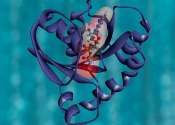Organic chemistry is a discipline within chemistry which involves the scientific study of the structure, properties, composition, reactions, and preparation (by synthesis or by other means) of chemical compounds that contain carbon. These compounds may contain any number of other elements, including hydrogen, nitrogen, oxygen, the halogens as well as phosphorus, silicon and sulfur.
The original definition of "organic" chemistry came from the misconception that organic compounds were always related to life processes. However, organic molecules can be produced by processes not involving life. Life as we know it also depends on inorganic chemistry. For example, many enzymes rely on transition metals such as iron and copper; and materials such as shells, teeth and bones are part organic, part inorganic in composition. Apart from elemental carbon, only certain classes of carbon compounds (such as oxides, carbonates, and carbides) are conventionally considered inorganic. Biochemistry deals mainly with the natural chemistry of biomolecules such as proteins, nucleic acids, and sugars.
Because of their unique properties, multi-carbon compounds exhibit extremely large variety and the range of application of organic compounds is enormous. They form the basis of, or are important constituents of many products (paints, plastics, food, explosives, drugs, petrochemicals, to name but a few) and (apart from a very few exceptions) they form the basis of all earthly life processes.
The different shapes and chemical reactivities of organic molecules provide an astonishing variety of functions, like those of enzyme catalysts in biochemical reactions of live systems.
Current (as of 2008) trends in organic chemistry include chiral synthesis, green chemistry, microwave chemistry, fullerenes and microwave spectroscopy.








